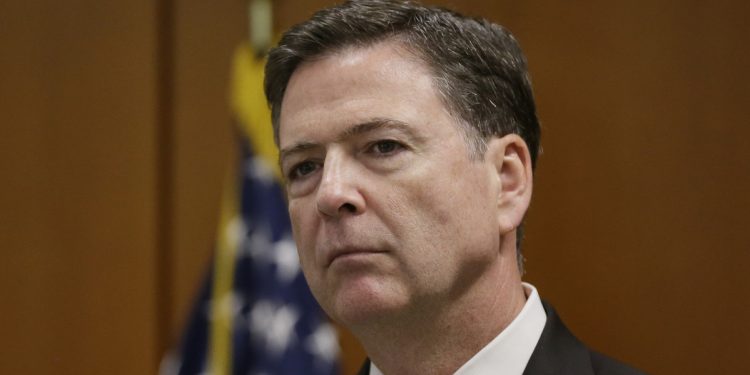Prosecutors asked the judge to quickly approve a proposal to create a “screening team” of lawyers to review evidence in Comey’s criminal case that could clarify Fitzgerald’s role in the eight-year-old revelations – without violating Comey’s attorney-client privilege.
Prosecutors proposed the “screening team” to the court last week, but in the new filing they said the request was particularly urgent because Fitzgerald played a role in Comey’s disclosure of information that officials later deemed classified.
“Based on publicly disclosed information, the defendant used the current lead defense attorney to inappropriately disclose classified information,” prosecutors Tyler Lemons and Gabriel Diaz wrote. “This fact raises a question of conflict and disqualification for the current lead defense attorney. »
The new filing is short on details, but references a 2019 Justice Department Office of Inspector General report that found Fitzgerald acted as an intermediary when Comey sought information from the media about what he saw as inappropriate efforts by Trump to get him to pledge his loyalty in the days before his firing.
About a month after Comey’s firing, he acknowledged in Senate testimony that he had asked another lawyer and friend, Columbia law professor Daniel Richman, to give versions of his notes to The New York Times in an effort to ensure that a special counsel was appointed to investigate Trump’s conduct.
The inspector general’s report found that some of the information Comey shared with his lawyers was classified and faulted him for sharing sensitive investigative information with outsiders and the media, but also found no evidence “that Comey or his lawyers disclosed any of the classified information contained in any of the memos to members of the media.”
The report also notes that the FBI decided to delete the documents Fitzgerald received from his email accounts — and that Fitzgerald, a former U.S. attorney in Chicago, cooperated “willingly and promptly.”
The Justice Department, under the first Trump administration, declined to prosecute Comey or anyone else for manipulating or disclosing Comey’s notes regarding his conversations with Trump.
However, last month Comey was accused of making false statements and obstructing Congress. The charges appear related to Comey’s alleged denial of any involvement in other leaks during his testimony before a Senate committee in 2020.
Fitzgerald declined to comment Sunday on the prosecution’s filing, which comes a day before Comey’s lawyers file their first substantive motions in the case. Comey’s lawyers are expected to seek to dismiss the case on the grounds of selective and vindictive prosecution as well as on the grounds that the Trump-appointed prosecutor who brought the case, Lindsey Halligan, was not legally appointed as acting U.S. attorney for the Eastern District of Virginia.
Screening teams are a relatively common but controversial aspect of many high-profile criminal cases involving government officials and other defendants who are lawyers or whose lawyers also find themselves under the scrutiny of investigators. The team’s job is to review the contents of phones or computers seized during a criminal investigation and eliminate any documents that might be subject to attorney-client privilege, attorney-client privilege or other limitations on prosecutors’ ability to access them.
Prosecutors did not provide the judge with a copy of the inspector general’s report, but offered a link to a version of it provided on the nonprofit Internet Archive’s Wayback Machine. The DOJ Office of Inspector General reported earlier this month that its website was frozen and then taken offline due to the Trump administration’s efforts to shut down an umbrella group, the Council of Inspectors General on Integrity and Efficiency.









